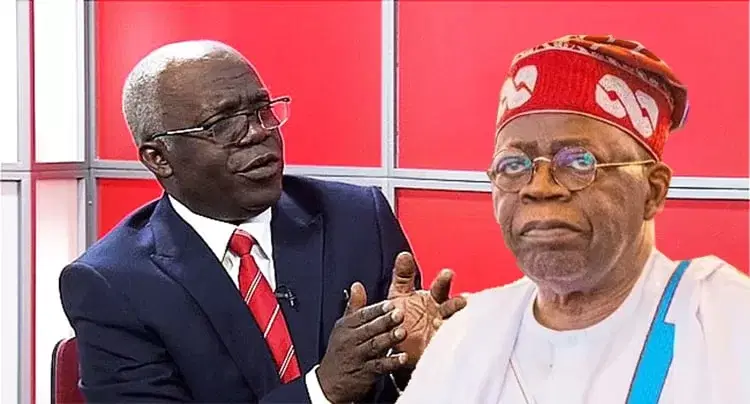A prominent Senior Advocate of Nigeria, Femi Falana, has asserted that Nigeria’s middle class has effectively disappeared under the economic policies of President Bola Tinubu’s administration.

Speaking on Channels Television’s Politics Today on Monday, August 4, 2025, Falana described the government’s neoliberal reforms as harsh and deeply damaging.([Daily Trust][1])
SUSTAINING INEQUALITY THROUGH PRIVATISATION
Falana strongly criticised Tinubu’s privatisation agenda, arguing that handing over public resources to a select few directly contradicts efforts to combat inequality.
“You cannot be addressing income inequality in a country while handing over the nation’s resources to a few people in the name of privatisation.”He warned that such policies have worsened poverty rather than alleviating it:
“Most Nigerians cannot afford three square meals a day. The middle class has been wiped out by the neoliberal policies of the government.”CALL FOR URGENT POLICY REVIEW AND WELFARE LAWS
Falana urged the administration to immediately reassess its economic strategies, particularly programmes promoted by international agencies such as the IMF and World Bank:
“Because of the religious implementation of neoliberal policies by the government, poverty is on the rise. That will require a review of these policies.”He advocated for the legal adoption of social welfare programmes—including N‑Power, school feeding, and conditional cash transfers—as anchored in the National Social Investment Programme (NSIP). According to Falana, these must be codified into law and domesticated by state governments to have real impact.
GLOBAL AND LOCAL CONTEXT: DISPARITY, DISSENT, AND DISTRESS
Falana’s criticisms reflect broader concerns across civil society and economic commentators:
• The Afenifere faction has described Tinubu’s economic reforms as “Tinubu economic deforms,” arguing that inflation, rising poverty, and unprecedented debt have deepened hardship, especially for vulnerable Nigerians.
• Independent analysts note that reforms like fuel subsidy removal and forex liberalisation led to inflation surging above 34 percent and the naira depreciating by over 70 percent in under a year.
• The World Bank estimates that around 129 million Nigerians—56 percent of the population—are currently living below the poverty line.
FALANA’S PROPOSALS: GOVERNMENT ACCOUNTABILITY AND SOCIAL SAFEGUARDS
Falana asked citizens to hold public institutions accountable, starting with close monitoring of budget execution at both federal and state levels. He emphasised the importance of budget oversight in ensuring public funds benefit the masses, not just elites.
He urged the government to trace and correct short‑sighted policies that favor the rich and penalize the poor:
“It is in the interest of the government to review its policies as soon as possible.”THE CRITICAL TAKEAWAY
Falana’s remarks present a stark warning: under current economic policy, Nigeria’s middle class is no longer a vibrant demographic but a fading memory. His critiques expose policy-induced hardship, and call for urgent reform and strengthened safety nets to stem inequality and reinstate a social contract that serves all Nigerians—not just the privileged few.



